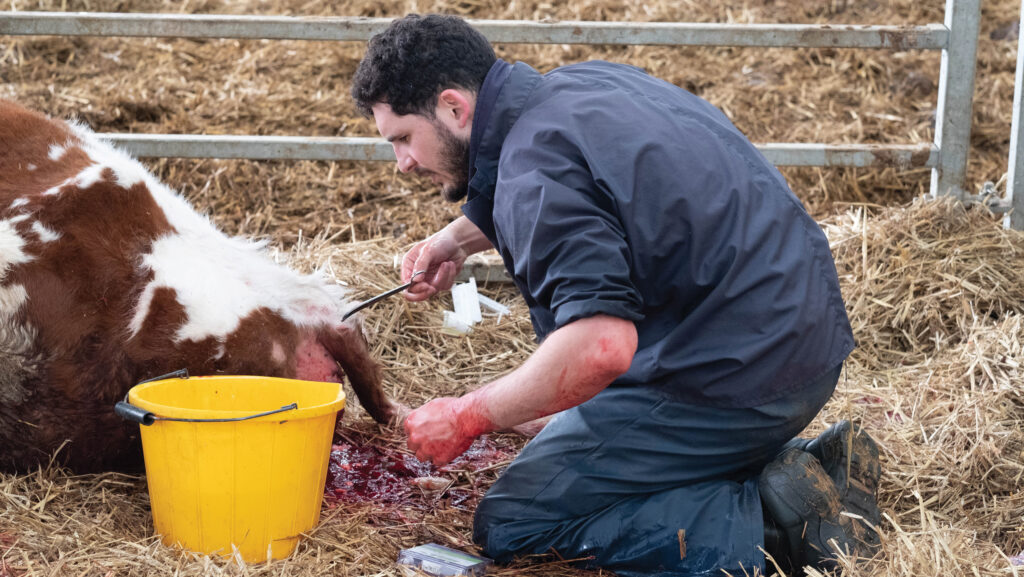Cow health strategy rethink needed after bolus loss
 © Tim Scrivener
© Tim Scrivener Dairy farms need to review their strategies for preventing metabolic disease in transition cows as monensin boluses are no longer on the market, said independent veterinary consultant Dr David Charles.
A blanket approach to their use does not consider differences in individual cows, or risk factors.
See also: How to have a successful dairy transition – vet’s top tips
“Older cows – third lactation-plus – need care, as they lose vitamin D and calcium receptors, and their yield increases as they age,” said David.
“A short dry period means a cow is in a more negative energy balance. Another significant risk factor is a cow that has had a metabolic problem before.”
With a 525% rise in calcium loss at calving and a drain on her energy, the transition cow also experiences changes in rumen microbiome and function, he explained.
Social changes, milking and group management also influence the cow’s biological state.
And a difficult calving or caesarean will reduce her dry matter intakes.
“It’s not just about supplying energy and calcium – we need to support beneficial rumen flora,” he added.
Choice of supplement
There are many nutritional supplements for the freshly calved cow aimed at helping to avoid milk fever and ketosis, either in bolus, drench, drink or injection form.
However, David said bolus products do not break down quickly enough within the first 48 hours after calving, nor release enough calcium.
They may be suitable for heifers, with lower yields and fat and protein content, but not multiparous cows.
Giving a product in a drink is an ideal way to correct dehydration after calving, he said.
The trick is in getting the cow to drink it all when she is likely to knock the bucket over.
Furthermore, he pointed out that drinks only supply 45g/litre of calcium and the cow needs at least 50g/litre to increase her blood calcium levels.
Ideal products supply a combination of long-lasting calcium, energy and rehydration. Those with added hydrolysed yeast also rapidly help the rumen microbiome.
Dr David Charles was speaking at the recent TotalDairy conference, Stratford-upon-Avon.
